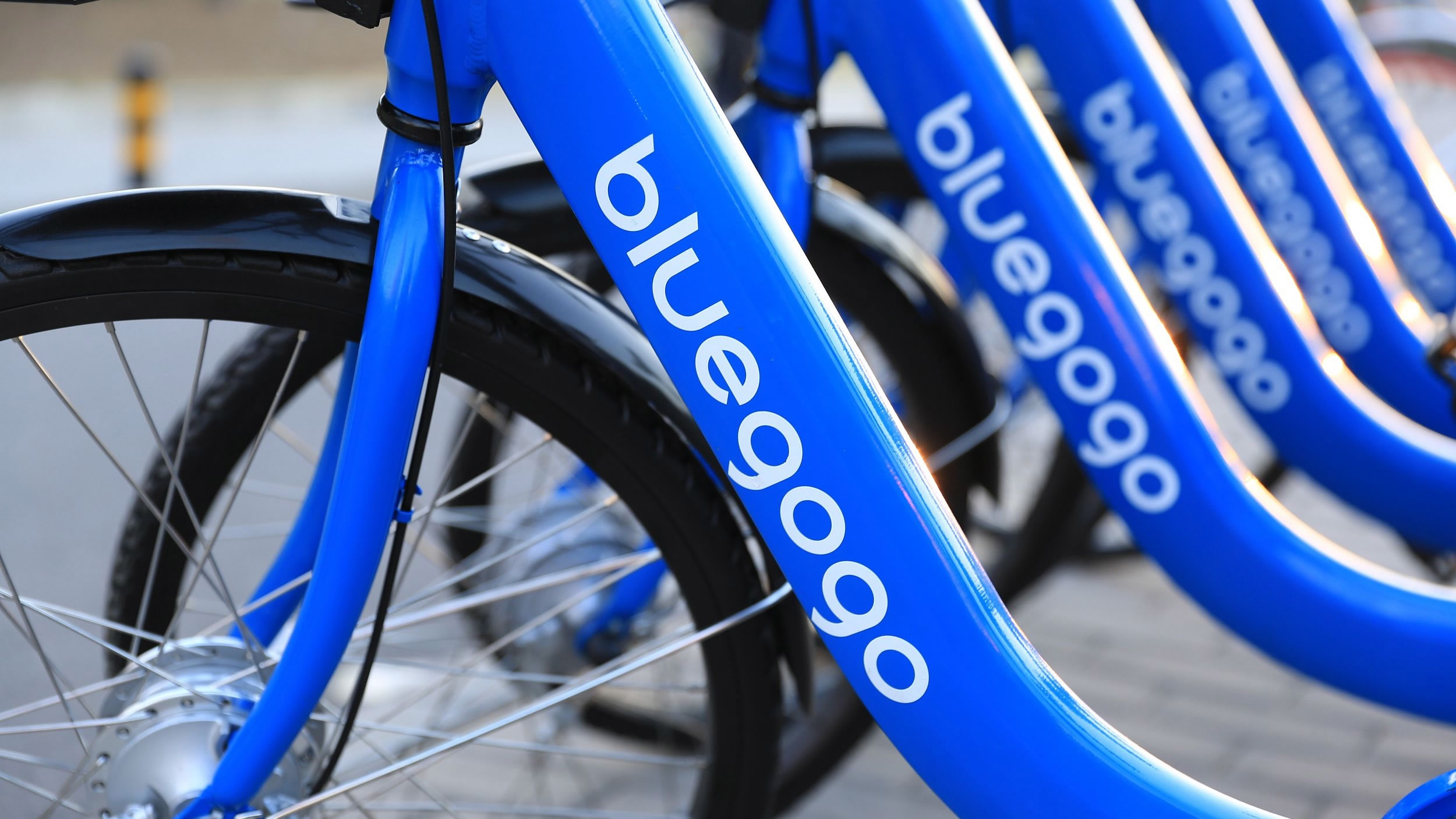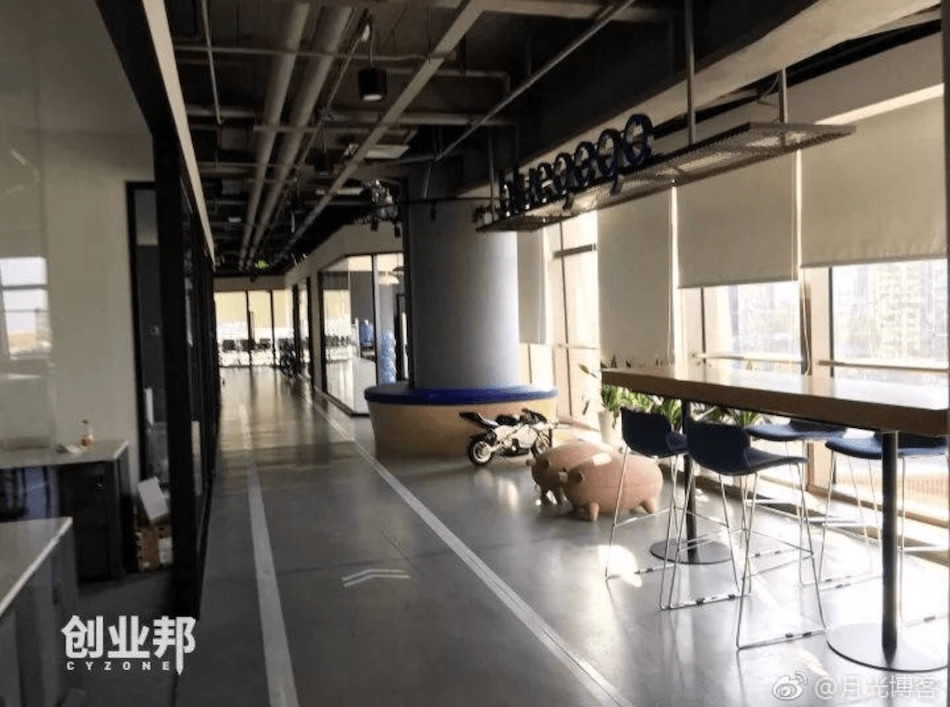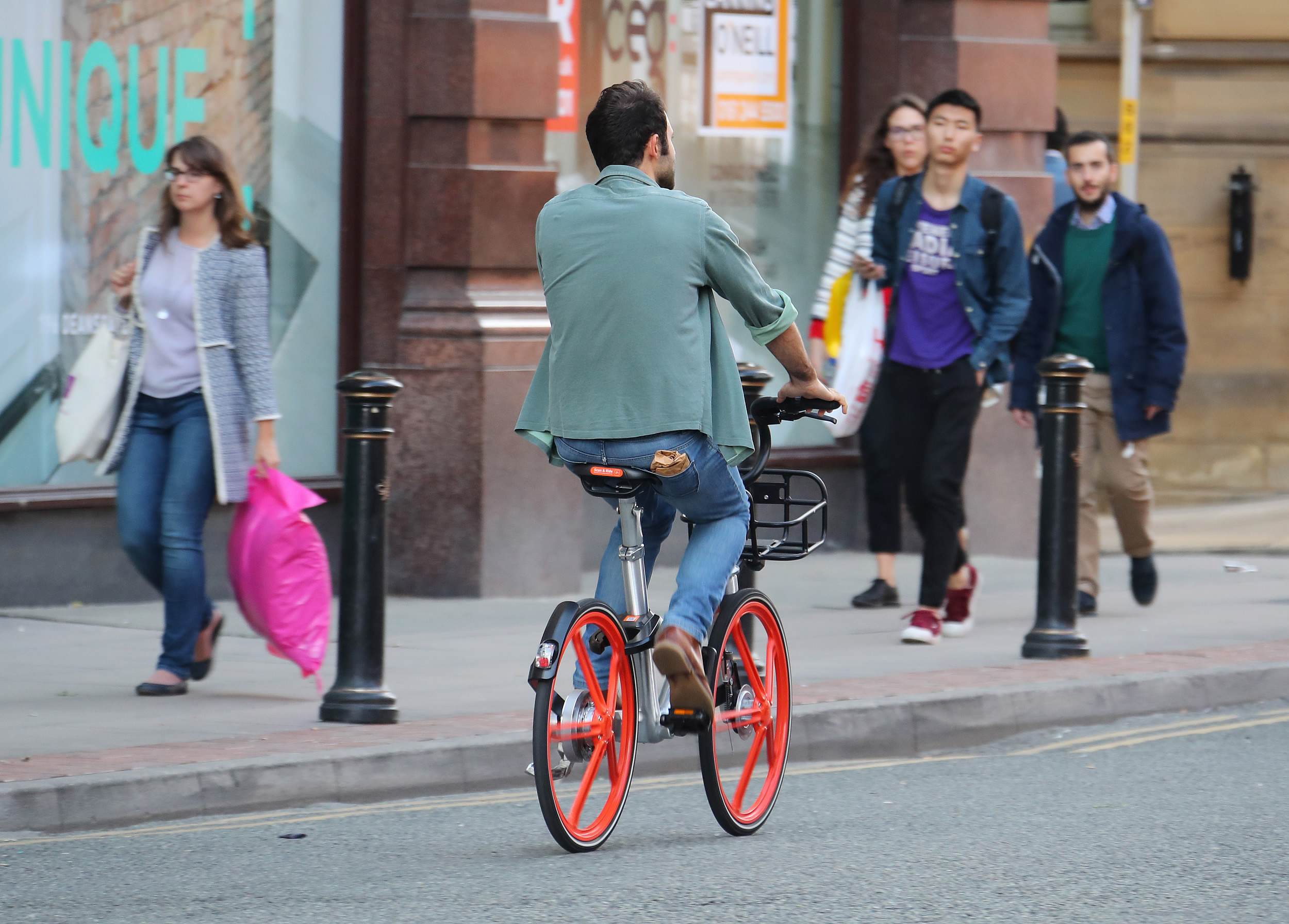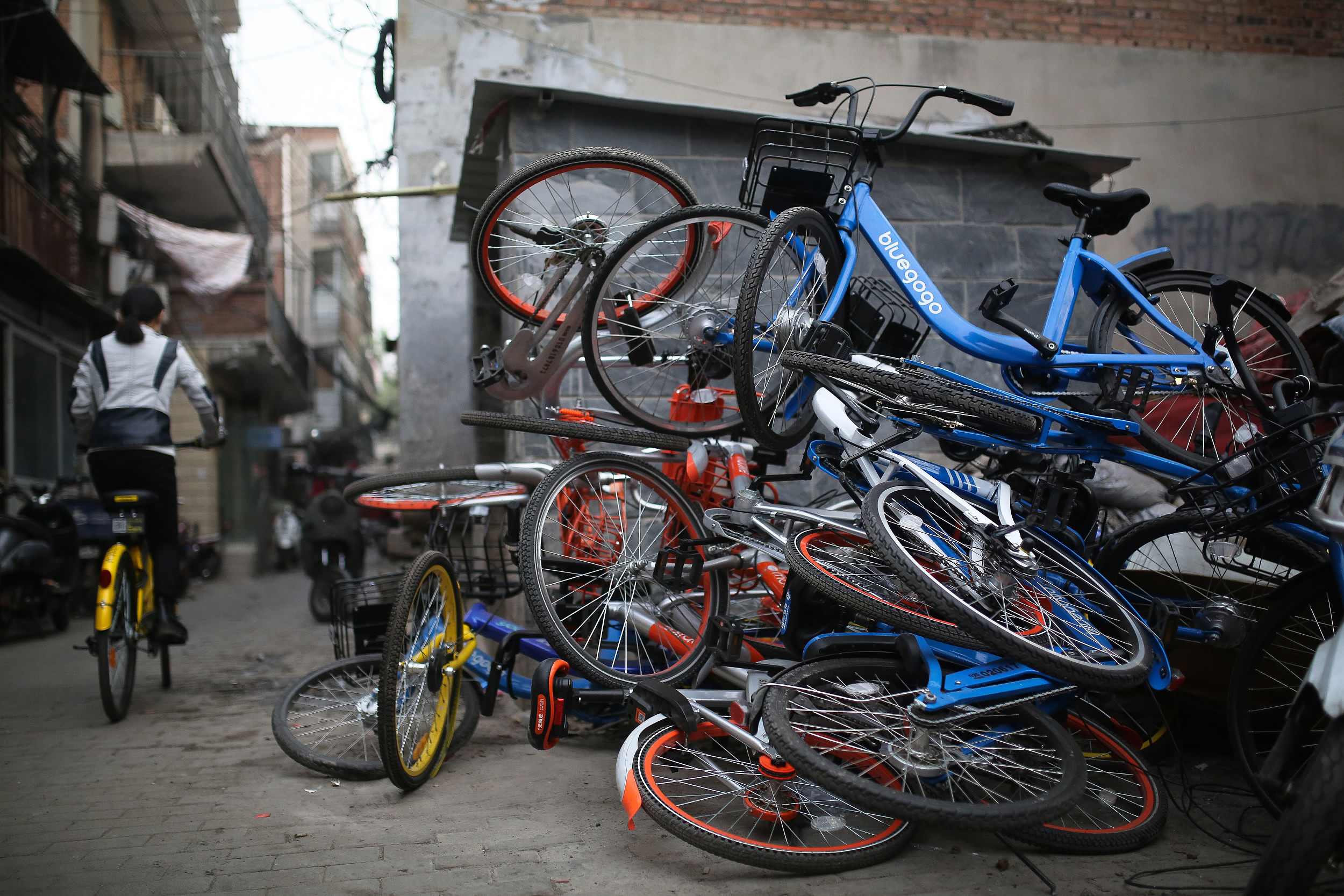
Business
15:13, 17-Nov-2017
Bluegogo set to declare bankruptcy: Is the bike-share bubble bursting?
by CGTN's Nicholas Moore

China’s bike-sharing bubble is set to claim its first major victim, with the expected bankruptcy of Bluegogo sparking concerns that the industry has overheated, and that the business models behind the wider sharing economy will need to have a rethink to become profitable and sustainable.
With some 700,000 bikes under its name, Bluegogo is a big player on the bike-sharing scene, third behind Mobike and ofo. If the bankruptcy is confirmed, the company will have burnt through some 58 million US dollars in venture capital, after being valued at 140 million US dollars.
According to media reports, users of Bluegogo have complained that their 99 yuan (15 US dollars) deposits are not being returned, while The Paper claims that the company’s Beijing headquarters are empty, and that two million yuan (300,000 US dollars) in office rental has not been paid.

Bluegogo's empty office. /CYZONE pic, via Weibo.
Bluegogo's empty office. /CYZONE pic, via Weibo.
Other reports in Chinese media suggest CEO Li Gang has been out of the country for some time, and that salary payments will be delayed until February 2018. Yicai Global, citing an insider in the company, says that Bluegogo is in debt to the tune of 200 million yuan (30 million US dollars).
With all the hallmarks of bankruptcy, ofo and Mobike may be happy to see the downfall of one of their main rivals, but they would do well to step back and take a look at the bigger picture. Bluegogo was the first Chinese bike-share company to expand overseas, experimenting in San Francisco – since then ofo and Mobike have both invested heavily into overseas markets in Europe and Asia.

A man riding a Mobike in Manchester, UK, July 2017. /VCG Photo
A man riding a Mobike in Manchester, UK, July 2017. /VCG Photo
The two bike-sharing giants have received huge levels of investment – ofo raised 700 million US dollars in a funding round led by Alibaba in July, a month after Mobike raised 600 million US dollars. But questions remain over how sustainable bike sharing is, and Bluegogo’s collapse will spark concerns over whether or not similar companies can be trusted by consumers, after handing over their deposits.
Jeffrey Towson, a private equity investor and professor at Peking University, has questioned whether bike sharing in its current form can ever be profitable. Without considering maintenance, theft or vandalism, Towson, in an op-ed published by CGTN, said it takes at least a year for one Mobike to break even, on the condition that it is used eight times a day.

Not top of the pile: The blue bicycles had become a common sight in various Chinese cities. /VCG Photo
Not top of the pile: The blue bicycles had become a common sight in various Chinese cities. /VCG Photo
“This is not a ride-sharing platform like Uber or Didi,” said Towson. “There is no network effect. This is a traditional bicycle rental business with an app.” While other business models like Didi or Airbnb can expand without either company having to buy new vehicles or accommodation, expansion in bike-sharing will always mean a responding expansion in costs.
In October, Bloomberg reported that the investors behind ofo and Mobike – led by tech rivals Alibaba and Tencent respectively – had entered preliminary talks on a merger of the two companies. The thinking behind such a merger would be that a pooling of resources would give a better base for further overseas expansion. However, Mobike has since then denied that there will be a merger with ofo.

SITEMAP
Copyright © 2018 CGTN. Beijing ICP prepared NO.16065310-3
Copyright © 2018 CGTN. Beijing ICP prepared NO.16065310-3